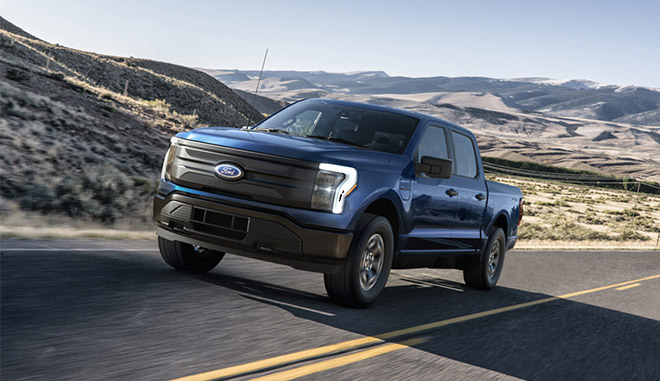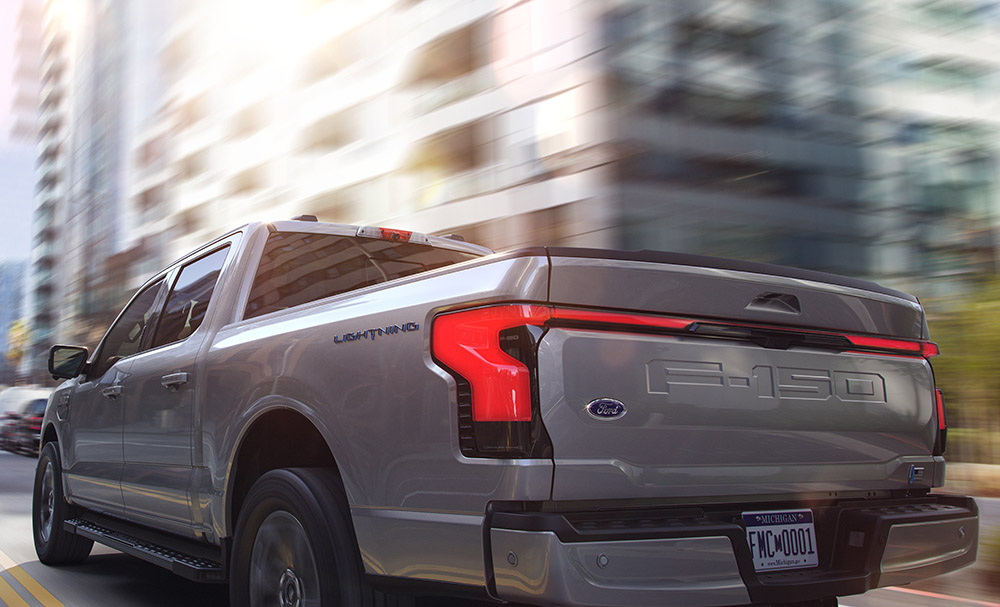Duke Energy is planning a new demand response pilot in the Duke Energy Carolinas service area. Under the program, which is expected to launch in 2023, customers who lease an eligible EV, including the Ford F-150 Lightning, will get reduced lease payments in exchange for allowing their EVs to feed energy back to the grid.
Duke will use the Lightning’s bidirectional charging capability to send energy back to the grid during times of peak demand, helping to balance energy consumption and production. Participants will need to have the necessary bidirectional charging infrastructure installed at their homes, including Ford’s Charge Station Pro home charger and Intelligent Backup Power Home Integration System.



The pilot program will allow Duke to draw energy from customer vehicles up to three times per month during higher-peak winter and summer months, and one time per month during the remaining months of the year. Duke will analyze the flows of energy between EV batteries and the power grid, and will work with Ford and other vehicle manufacturers to study the functionality of bidirectional charging.
“Duke Energy is building a more intelligent, sustainable, smart grid designed to encompass growing energy demands,” said Harry Sideris, Executive VP of Customer Experience, Solutions and Services at Duke. “We’re working to maximize the benefits and potential of EVs for our customers, and initiatives like this can help reduce EV cost while supporting the grid during critical times.”
“Ford’s electric vehicles are unlocking new possibilities in energy management for our customers, becoming valuable energy storage sources that are changing the game on the benefits an EV can deliver,” said Steven Croley, Ford’s Chief Policy Officer and General Counsel. “Alongside Duke Energy and our mutual customers, we’re working to fine-tune and expand these capabilities that will not only power their lives, but also accelerate the development of a less carbon-intensive grid.”
Duke Energy and Ford are also collaborating on a similar but smaller-scale V2G pilot in Florida, which is also scheduled to begin in 2023.
Source: Duke Energy
